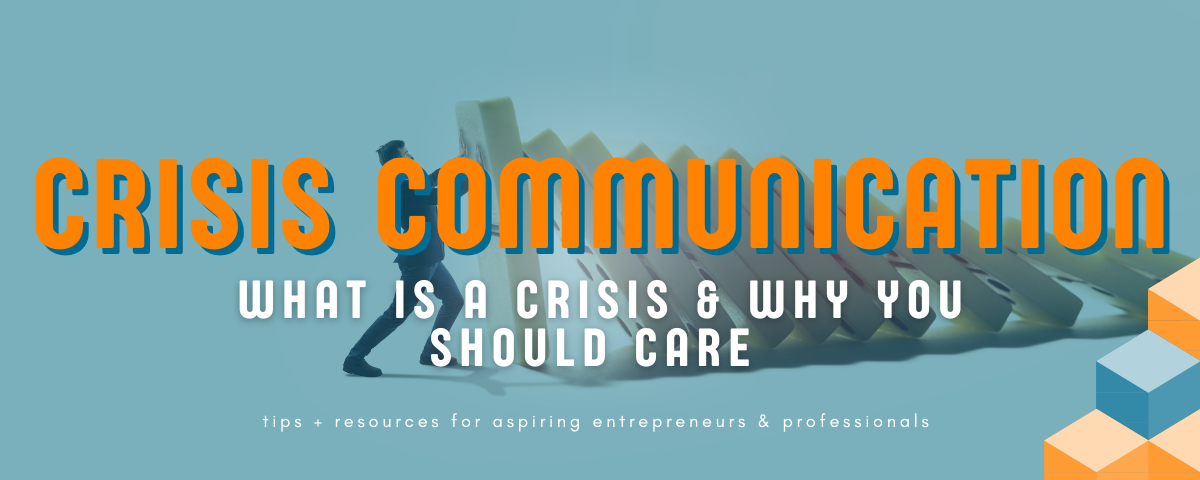Crisis Communication: What is it and Why Should You Care?
An Unwelcome Reality – One that No Organization or Company Can Escape
Unwelcome Reality
When it comes to heading off a potential crisis, it pays to have your bases covered. That’s why entrepreneurs and employers must acquaint themselves with the foundations of crisis communication starting with understanding what makes a crisis. At Evocati PR, we’ve helped clients navigate the bumpy road of crisis communication with positive results and want to help you.
What is a Crisis and Crisis Communication?
Source: Squarespace
A crisis is anything that could potentially damage your business or your brand and/or be harmful to your employees or customers. It is often followed by negative press, decreased brand perception, or worse, decreased revenue.
Crisis communication involves mitigating negative events that could harm your credibility or image through public relations, media relations, and more. It is a vital aspect of any organization's strategy when it comes to managing the fallout.
Types of Crises
There are seven types of crises that any business or organization must be prepared to face:
Financial - A sudden and unexpected loss of capital.
Personnel - A disruption in the workforce brought on by personnel changes.
Organizational - Operations or organizational structure changes that have negative effects.
Technological - Technology failures or disruptions that jeopardize capital, personnel, or finances.
Natural - Natural disasters that cause major damage to the company's operations.
Confrontational - Protests and strikes are common forms of Confrontational crises.
Workplace Violence - Any form of physical violence in the workplace that threatens the safety of employees and/or customers.
Maybe you’ve already faced one of these in your PR or communications role or you’ve yet to see this happen. Either way, you need to be prepared to enact crisis comms—ASAP.
Why Does Crisis Communication Matter?
In today's 24/7 news cycle—along with the rise of social media—the way in which an organization responds to a crisis can make or break its reputation, sometimes permanently. Without a strong plan, a business may find itself in a dire situation, with no way to regain control or limit damage. You can prepare with training, research, and planning to respond to a crisis.
What Can I Do Today to Prepare?
Source: Squarespace
One tangible step you can take today is to review the examples listed above and ask yourself this question: what have we faced in the past that could be considered a crisis and how did we respond? Once answered, you've already started generating a Crisis Response Plan—take your previous crisis and consider ways in which you or your organization can respond if it happens again. Will you issue a statement from your CEO? How will you involve your employees? Explore these questions and more to prepare for the next crisis.
Need More Help?
You may find yourself at the crossroads of a crisis. If so, contact our team today so we can help you enact a crisis response plan.





